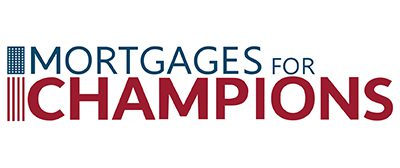Happy Memorial Day
Happy Memorial Day from everyone at Residential Home Funding Corp. We will always hold a special place in our hearts for the men and women who put their lives on the line for our country.
Rick Riddle – Director of Sales
The spot light is on Rick Riddle, Director of Sales. He is giving us the inside scoop on his predictions for 2013.

Henry Zimmermann of The Zimm’s Fund & Marine Care

In their efforts to bring comfort & good health to wounded & sick men & women of United States Armed Forces- For good food, good music, bag pipes, and a silent auction.
Above is Liz Santos, who received a certificate of appreciation on behalf of Residential Home Funding Corp, from The Zimm Fund, for support of marines care
Carl Selitto- Loan Officer
Happy Monday morning everyone! Start off your week by reading Carl Selitto’s expert opinion on why it is important to work with local professionals. We have branches all over the east coast, so we can set you up with a local loan officer in your area. We have great partnerships with professional real estate agents and attorneys that we would be more than happy to connect you with.
Mike Ferraro- Branch Manager
Happy Monday! Today’s tip from one of Residential Home Funding’s experts comes from Mike Ferraro, a Branch Manager at our Blue Bell Branch in PA. Check out the one thing you cannot ignore when comparing loan options.[/caption]
Gretchen Halsey’s Advice to Homebuyers
Mortgage Terms That Are Worth Learning
 When trying to obtain a loan, many terms are thrown around by your lender, real estate agent, and attorney. In some situations, you can sometimes get by with out taking the time to learn every single word used by the professionals, but in any process involving your personal finances, you want to fully understand everything that is going on in its entirety since not knowing can cost you big time. Below is a glossary of the most commonly used mortgage terms and the definitions in simple terms, so that you can be an educated borrower.
When trying to obtain a loan, many terms are thrown around by your lender, real estate agent, and attorney. In some situations, you can sometimes get by with out taking the time to learn every single word used by the professionals, but in any process involving your personal finances, you want to fully understand everything that is going on in its entirety since not knowing can cost you big time. Below is a glossary of the most commonly used mortgage terms and the definitions in simple terms, so that you can be an educated borrower.
Adjustable Rate Mortgage (ARM): A mortgage loan with an interest rate that will change or adjust periodically. It depends on the rate and term of your loan how often your rate will change. It could change annually or every three years.
Amortization: This is the schedule for paying off a mortgage loan, showing the regular and required payments toward principal and interest over a set period of time.
Appraisal: This is a report done by a licensed appraiser, to determine a price a property is valued at. The appraiser bases the value on comparable sales of homes in the surrounding area.
Assessed Value: The value of a property for tax purposes and is done by a tax assessor. (The appraised value and assessed value can be different)
Broker: A broker is anyone who earns a fee while acting as an agent to bring two parties together for a transaction.
Closing: The closing is a meeting in which the buyer, seller, attorneys and sometimes even a real estate agent come together to sign the documents that transfer ownership of the home from one party to another. Many times the lender charges closing costs for a loan, and you would pay these costs at the closing. You will always need a current license with you at the closing as well.
Closing Costs: Closing costs are usually made up of escrow fees, recording fees, title search and any other costs associated with the loan. For Residential Home Funding’s Mortgages for Champions loan program, they waive all closing costs and lender fees.
Contingency: A condition that must be met for a contract to be legally binding. This term is used most frequently when talking about home inspections. For instance, when a buyer signs a contract for a home, but the deal is contingent upon the home passing inspection.
Credit Score: This is a number between 300 and 850 used to show creditors and lenders the creditworthiness of a potential borrower. The score used to qualify for a mortgage is the middle out of three bureaus, Equifax, Transunion, and Experian. The scores are calculated through an analysis of a person’s borrowing habits and payment history. The higher the score, the better.
Down Payment: The amount of the purchase price of a home the buyer has to pay up front, in cash or check. You cannot use a mortgage to pay the down payment on a home, but you can be gifted the money from a friend or family member. A gift is not money that needs to be repaid to someone else.
Equity: The difference between the value of the property and the amount still owed on it. If a home is worth $500,000 and the homeowner owes $300,000 on the mortgage, the homeowner’s equity in the home is $200,000.
Escrow: The process by which a third party holds money for safekeeping until a transaction is closed.
Escrow Account: The account where the escrow funds are being held and from which the buyer’s money is transferred to the seller and to pay fees in the sale. Some people choose to have an escrow account with their lender to cover the taxes and homeowners insurance. This means that the lender will be making these payments for the borrower.
Fixed-Rate Mortgage: A conventional mortgage loan that has an interest rate and monthly payment that remains the same for the life of the loan.
Home Equity Loan: A loan or second mortgage that a borrower can take out against the equity in a home, essentially trading equity for cash. The interest paid on a home equity loan is tax deductible.
Home Equity Line of Credit: This is similar to the home equity loan, but instead of getting a lump sum of money, the borrower is approved for a certain amount that can be withdrawn in pieces using a debit card or by check.
Home Inspection: This is a thorough examination of house done by a professional inspector. The inspector will evaluate the home and look for structural defects and things like mold. Many home buyers will have the passing of a home inspection a contingency of the sale.
Interest-Only Mortgage: This allows buyers to pay just the interest in the beginning of the loan for a set period of time. When the borrower’s interest only period is done however, the minimum monthly payment is generally higher.
Jumbo Loan: A jumbo mortgage is a non-conforming loan that is larger than the home loan limits for Freddie Mac and Fannie Mae are willing to back because they are risky. A jumbo loan generally has a higher rate than a conventional.
Lien: Claims against a property that has to be paid off before the sale of the home. A seller can sell the home if there is a small amount of money owed, but the liens have to be paid at the closing.
Loan Origination Fees: These are the fees associated with taking out a loan, such as the processing fees.
Loan-to-value (LTV): This is the ratio between the amount of the loan and the appraised value or sale price of the home. If your LTV is too high, you may not qualify for a loan.
Lock or Lock-In Period: The time period in which a loan cannot be paid off earlier than stated without financial penalty, so that the lender is assured of obtaining a certain minimum return on the investment.
Mortgage Insurance (MI): Insurance paid by the homebuyer to ensure that if the buyer defaults on the mortgage, the mortgage holder still gets their money. When the LTV is high, the lender usually requires the buyer to have MI.
Mortgage Points: Lender’s fees or advance interest that a borrower pays up front in exchange for a lower interest rate for a certain part of the loan term.
Owner Financing: A transaction in which the property seller provides the loan to the buyer.
PITI: This is an acronym for principal, interest, taxes, and insurance.
Pre-approval Letter: A letter given to a homebuyer to let them know exactly how much they qualify for. This gives the homebuyer a stronger hand in negotiations since the seller of the home already knows they have secured finances.
Pre-payment Penalty: A fee given by the lender if a borrower makes an advanced payment or pays off a loan earlier than the due date or payment terms in the agreement.
Pre-qualification: This is when a loan officer looks over potential borrowers finance and uses their knowledge to determine if they will be able to qualify for a loan. This is the first step in qualifying for a loan.
Principal: The principal is a part of the monthly loan payment that goes toward the balance of a mortgage.
Rate Lock: A commitment by a lender that an interest rate will be available for a specific length of time.
Refinancing: This is when a borrower replaces and existing loan with a new one. This is done for a number of reasons but usually is done to lower the interest rate, pay-off debt sooner, to get cash out upfront, or to switch loan types.
6 Ways to Get Your Finances In Order to Save For a House
The idea of purchasing a house can become a reality, but you need to take certain steps in order to make it happen. Looking at your bills and debt could seem discouraging if looked at in their entirety, but broken down into simple lifestyle changes will help you get your finances in order.
1. Create A Budget. The dreaded B word is enough to make some people go into cardiac arrest. If you are one of these people, start off by just taking inventory of your daily spending. Keep all of your receipts for a month. At the end of every week, add up the receipts and average out your weekly expenses for a month and include your bills. Look at where your money is going, and then create a realistic budget for yourself based off your expenses. This method will take into account your daily and impulsive buys, as well as your rent, gas, car payments, and groceries.
2. Reduce Your Debt and Build Up Your Credit. The first thing that lenders look at is your credit report. If you don’t have perfect credit, don’t panic. Focus on making payments to bring your debt ratio down and do not open any new lines of credit until after you get your house.
3.Save, Save, Save. Yes, saving is easier said than done. Be aware of every time you spend money. The little expenses really start to add up. Your daily Starbucks coffee or buying your lunch at the café across the street from your office can really make a dent in your bank account. Look for little ways to save, like making your coffee or making your lunch. When you really start taking note of where your money is going, you might see easy ways to save yourself some major cash.
4. Try and Increase Your Income. Maybe you are due for a raise, it can’t hurt to ask! If a raise is out of the question, consider taking on a second job. In order for your second job to make a difference with your lender however, it needs to be on the books.
5. Save For A Down Payment. Every month, no excuses, start putting a set amount of money into your savings account. You can purchase a house with as little as 5% down payment or even less depending on your specific loan program, but generally you get a better rate if you have a larger down payment.
6.Don’t Change Your Job. Lenders look at your employment history, so jumping from one job to the next is going to go against you, especially periods of unemployment. If you are thinking of making a career change, wait until after you purchase your home.
Renting vs. Buying
Still trying to decide if you want to make the change from renting to buying a home? Many people struggle with this important decision to buy a home and are not sure if forking out the cash for a home is worth it in the long run. Buying a home is one of the biggest, if not the biggest, purchase of most people’s lives, so hesitation and anxiety is expected.
For some, the pride of home-ownership is enough of a reason to make the plunge into purchasing. Being able to make decisions on the color of the walls, or being able to renovate when they please, combined with the stability and security of having a place that is yours is a dream to many.
Even though real estate moves in cycles through out the years, real estate has consistently appreciated in the United States. After you purchase your home and start making payments on your mortgage, you will start building equity in your home. Your property’s equity increases with the combination of the appreciation and the payments you make against your mortgage balance.
Being a homeowner also provides you with great tax deductions, since the real estate property taxes paid for a first home and even a vacation home are fully deductible for income tax.
Still not convinced? Check out some statistics!
http://www.realtor.org/field-guides/field-guide-to-buying-vs-renting





